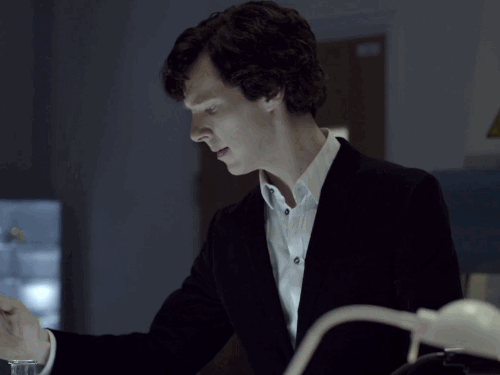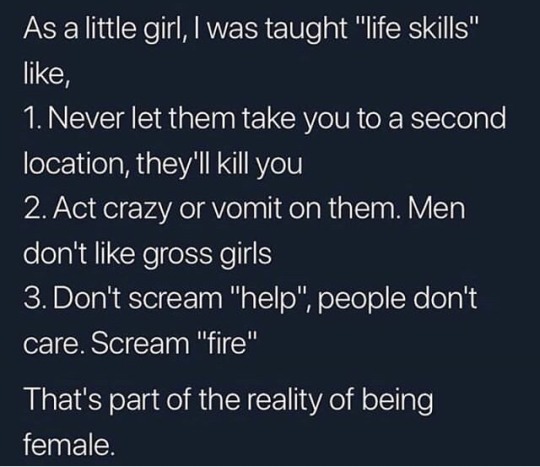This is a criminology, psychology and criminal psychology blog (or trying to be )
Don't wanna be here? Send us removal request.
Text
my favorite childhood memory is having energy
80K notes
·
View notes
Text
they should invent a loneliness that’s bearable
52K notes
·
View notes
Text
being a sleepy girl and a reader is really hard
21K notes
·
View notes
Text
“protect heteroromantic aces” lmao from what? the sharknado?
175K notes
·
View notes
Text
zlibrary gone... FUCK TIKTOK FUCK BOOKTOK I hope that app burns in hell
108K notes
·
View notes
Text
Deduction: Passive or Active?
In my posts, I tend to focus a lot on teaching Deduction concepts and guiding people through its usage and branches, especially when it comes to my Amateur Deductions content, but this time I thought I'd talk about a topic that falls more in the misconception category rather than a lesson or guide to Deduction. This is one of the more interesting deduction topics I've tackled so I'm excited to delve into it!

Due to the way we see Deduction portrayed and used most of the time, there tends to be this intense focus on developing this skill the same way we'd practice bird watching or media analysis. We tend to see Deduction as a skill that entails sitting down in a corner of the room and analyzing people, maybe with a notebook to take down our observations, like undercover scientists, never getting involved. We see deduction very much as a passive activity, and I include myself in this behavior, and who can blame us? every time we talk about Deduction we talk about observation, about people watching, about situational awareness, and all of these are skills and activities that require little to no interaction with the environment we're in, we think of mindfulness, not of involvement.
Now, in light of this, my thesis question becomes: Should Deduction be a mostly, or even an entirely passive skill or uninvolved? and to bluntly answer that question, no, it should not be a passive skill, and making it a passive skill limits your deductions tremendously.
When we learn to deduce, something we should be understanding and learning alongside it is that the world is an inherently interconnected place, what allows us to connect someone's car keys to their handedness, to their address, to their morning routine, to their recent fight with their significant other, is the understanding that all of these things have some interconnecting threat (this is very much a hypothetical scenario but the example is not unreasonable at all). And with this understanding, a good deductionist should sooner or later conclude that these threats can be manipulated. A good deductionist, therefore, understands that Deduction doesn't have to be an uninvolved process
Observation, as understood in deduction, is the act of taking in the world around you through the use of your senses, all your senses, but what do you do about the things that are not currently on display? how do we deduce anything about someone's cleaning habits if we're not close to them to observe the necessary details? how do we deduce someone's behavior in groups of friends if we're only looking at them sitting alone having coffee? We're only human, and we cannot notice absolutely everything, couple that with the fact that not everything is always on display and you start to realize that there's a lot that we can't see, and therefore a lot that is much harder to deduce
Well a skilled deductionist might be able to find a clever connection between what they're seeing and a totally unrelated subject, which don't get me wrong, it's a valid, impressive, and sometimes necessary approach. But a good deductionist can understand that they are in the same system as the subject they're deducing, and therefore they can manipulate it. They can ask for some change to take a look at the subject's wallet, they can pass next to the subject in a crowd to smell what perfume they're wearing, they can ask for the time to look at the subject's phone, or toss them a pencil to see what hand they catch it with. You are a scientist, and you control the environment around you to have the conditions you need for your experiments
Deduction doesn't only give you the tools to know things, it gives you the tools to carve your way to information you couldn't have possibly gotten by passively observing. The world is a dynamic, interconnected, ever-changing place, and deductionists use their skills to understand it and navigate it, but the understanding deduction brings comes with the possibility (and sometimes the responsibility) to influence the world and the people we try to understand
This is very theoretical, and often when I see posts like these trying to teach something as theoretical I find myself asking "yeah sure, but how do I actually do that?", so apart from the examples I gave earlier, here are a few general things you can do
Think of where your deductions are before getting involved, and where you could take them if you had a certain piece of data, and then think of how to acquire that data
Guide interactions you have with people to bring up topics you want more information on
Set up scenarios with people that lead to an outcome you want (like them pulling out their wallet to pay for something, putting on glasses to see a picture on your phone, or taking them to a hot place so they take off their jacket and let you see any tan lines or tattoos)
Establish baselines for people and test out different deductions you've made part of said baselines, introduce different variables into the situation at hand and see how their baselines shift (for example, get them talking about something they're passionate about and see how their gesticulations change)
Deduction should definitely be an active process, you're the one that's studying how everything connects together, learn to tug on those connections and your deductions will be faster and more efficient
Happy Observing!
-DV
59 notes
·
View notes
Text
Memory is not deduction!
Welcome to another one of Damian's rants, the last one I made got a lot of attention, I hope I can reach as many people with this one. This time we're discussing memory! a very cool topic but also one I've seen misused more times than I can count, some very recently. So here are my two cents on how it relates to deduction and how to use it correctly.

So anyone that's ever gotten into deduction has at some point heard of amazing memory feats being used in the process, we've all seen Sherlock talk about his mind palace, claiming to know 243 types of tobacco ash, or know the number of a flight that takes off from London that week. Hell, whoever's seen a deductionist do their thing in real life has probably heard them talk about how they've memorized the most common plants from a certain area, or the phone passwords of everyone in their class, and we've all probably assigned more importance to memory than we should've
My theory as to why this happens is simply because when we see anyone deduce, and we see memory being implicated, we latch onto it because it's the most familiar of the two skills at hand. This leads to people developing their memory skills and orienting it towards deduction, and before you know it you've trained a completely different skill and you're getting almost nowhere with your deductions
So the question becomes, what separates the two? why do we see memory be used in deduction so much and how much importance should we actually give it?
Well while memory is very much its own, complex skill, when studying deduction we should treat memory more as a tool than as a discipline. Deduction is, at its core, based on reasoning and logic, and yes, memory can be important when employing reasoning, for example as humans we inform our reasoning by past experiences, which are after all memories, but memory and knowledge mean nothing if we're not able to apply them correctly. On the other hand, just because you don't have the knowledge about something or someone committed to memory, doesn't mean you can't apply logic to gain information and reach conclusions. I may not know 243 types of tobacco ash but I do know tobacco ash means someone's been smoking, I do know smokers take regular breaks from activities to go smoke, I do know smokers can have nicotine stains on their fingers, I know smokers carry packs of cigarettes and lighters, that their smoking gets more intense under stress, and that they can develop an intense, dry cough, all of that is information I know about an individual without ever having a knowledge bank about cigarettes in my head.
So, long story short, deduction is a skill that does not by any means hinge on memory, but that rather can be aided by it, which leads me to my next point: how do we make memory useful?
Imagine downloading the entire internet onto your phone, it sounds cool right? all the information about everything in history, and you can access it on the go no matter what, no data? no wifi? no signal? no problem, you have it all there! It's an exciting concept, but now sit back and think about how much of that you'll actually use, probably not even 10% of that information will be touched 90% of the time, simply because it's just not useful for you. Now in that same vein imagine having a mind palace and filling it with all the crap you can think of, the periodic table, phone extensions for every country in the world, the 100 most common medications, all the countries in the world, and more. Now think about how much of that is actually useful to you, even better, think about how much of that is knowledge you can't get with a 5-second googling session, the answer is almost none of it will be useful to you most of the time and all of it can just be googled.
These are the two most important things to keep in mind when filling a mind palace or memorizing anything:
Is it actually useful for me? don't memorize the phone extensions of every country when most smartphones today tell you what country someone's calling from, plus, again, you can just google it, it takes 5 seconds. To quote one Sherlock Holmes (or at least the BBC version): "ordinary people fill their heads with all kinds of crap and that makes it hard to get to the stuff that matters"
Is it information you can't just google? Look, Sherlock Holmes was written in the 1800s, they didn't have the entire internet in their pocket, having information memorized was basically all they could do to carry it around, unless they wanted to carry bags full of books, tomes, and encyclopedias. You don't have to memorize everything, most information is already in your hand right now
So, for example, I do a lot of chemistry, I don't always have a periodic table with me, and while I do have my phone I have to use information about the elements so often that looking it up actually slows down the process (seriously, I have to work with 3 or 4 different elements and check them multiple times for a single problem or lab calculation, the back and forth on a phone ends up just being annoying). So for me, it's very useful to have the periodic table stored away in my mind palace for easy access whenever I need it (trust me, it's saved me in countless exams)
A final, but definitely not less important point I want to hammer down is this: Make sure you know how to use the information you memorize. Look, I have the periodic table memorized, but I've done it in a very specific way so it maintains its structure in my head, because the place where an element is on the table actually gives you information about it, and this is something not everyone knows. I had a friend who also memorized the table and had no chemistry knowledge, and he did it in a way that was almost useless if he ever wanted to put it in practice, it was quite literally wasted mind palace space.
That's all for this talk, I hope it was useful!
Happy Observing
-DV
103 notes
·
View notes
Text
i think humanity’s love affair with the sea is perhaps the sexiest thing about us
42K notes
·
View notes
Text
@Fanfic writers:
My friend send me this link, is a series on a profile on Ao3 (tumblr) that has different tutorials to insert things to fanfics via html code, I thought I would share bc it’s really cool
Lists of tutorials:
How to make images fit in mobile browsers
This is a tutorial/live example on how to make large images fit on mobile browsers but remain normal size on desktop browsers.
How to mimic letters, fliers, and stationery without using images
This is a tutorial/live example on how to mimic the look of letters, fliers, and stationery (as well as other forms of written media) without using images. For all your epistolary fic needs.
How to make a “choose your own adventure” Fic
This is a tutorial/live example on how to create a "Choose Your Own Adventure" fic. While this has been explained before (see here), this particular tutorial shows you how to use a work skin to hide the next parts from the reader until they click through to get to them.
How to make linked footnotes on Ao3
This is a live example of how an author can create linked footnotes in their work with only a little bit of HTML and no workskins required. This is best viewed by clicking "Entire Work". While I've included the actual coding in bold and italic once you click "Hide Creator's Style", there's a more detailed explanation here.
How to change text on Ao3 when the cursor is hovering over it (or clicked on mobile)
This a tutorial/live example on how to have text change or appear once a cursor is hovering over it. Helpful for pop-up spoilers, language translations, quick author's notes, etc.
How to mimic author’s notes and Kudos/Comment buttons
Anonymous on tumblr: do you have a skin that would mimic the author’s notes and review/kudos buttons section from the end of a fic? the desired effect being that the fic could go on after the “end” of the fic, so after the author’s notes and review/kudos buttons
Here's a tutorial/live example to do just that, with some of the buttons actually functioning. I'll explain more inside!
How to wrap text around images
This is a tutorial/live example on how to align images to the left or right of the screen and have text wrap around them.
How to mimic email windows
This is a tutorial/live example on how to mimic email windows on AO3 without the need to use images.
How to make ios text messages on Ao3
This is a tutorial/live example on how to mimic iOS text messages on AO3 without the need to use images. There's also a chapter on how to have emojis displayed on AO3 as well.
How to make Customized page deviders
Bored with the default page dividers? This is a tutorial/live example on how customize your page dividers with no images needed (though I do show you how you could use images if you wanted to do such a thing).
How to make invisible text (That can be highlighted)
This is a live example how to make invisible text that can only be seen by highlighting the text. Tutorial is included in text, and you can always leave comments about questions you may have.
MOBILE USERS: Sadly, this probably won't work for you, since highlighting in a mobile browser is different than web. I've tried correcting this, but have yet to find a solution.
How to make a rounded playlist
Original coding and design is from layouttest. I make no claims for it, just tweaked it so it will work on AO3.
How to create notebook lined paper on Ao3
This is a live example of my AO3 skin that allows the author to recreate the look of lined notebook paper in their work. To learn more about it, you can find the tutorial here.
Sticky notes on Ao3 without using images
This is a live example of my AO3 skin that allows the author to recreate the look of sticky notes (aka Post-Its) in their fic. To learn more about it, you can find the tutorial here.
How to make deadpool’s thinking thinking boxes on Ao3
This is a live example of my AO3 skin that allows the author to recreate the look of Deadpool's thinking boxes in their fic. To learn more about it, you can find the tutorial here.
How to make newspaper articles on Ao3
This is a live example of my AO3 skin that allows the author to recreate the look of a newspaper article in their work. To learn more about it, you can find the tutorial here.
34K notes
·
View notes
Text
“i just like my alone time” i say as if loneliness hasn’t been all i’ve known since childhood
65K notes
·
View notes
Text
“you‘re so quiet” baby i’m not even here. i’m fantasizing about a book i read weeks ago. move on.
102K notes
·
View notes















